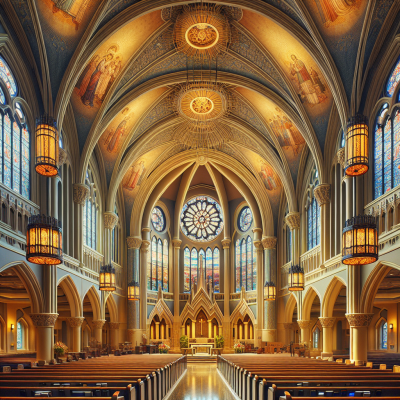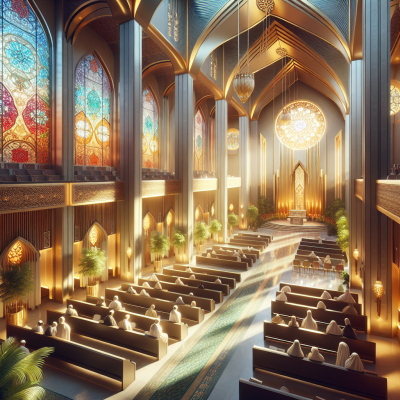
Religious Centers in Atlanta: A Guide for Visitors and Locals
Overview of Religious Diversity in Atlanta
Historical Background of Religion in Atlanta
Atlanta, often regarded as the cultural and economic hub of the Southeastern United States, has a rich tapestry of religious history that mirrors its diverse populace. The city’s religious roots trace back to its founding days, primarily influenced by the Methodist and Baptist denominations. In the 19th century, Atlanta became a focal point for religious movements with the establishment of key churches that played pivotal roles in both spiritual and social transformations. The Civil Rights Movement, heavily intertwined with religious leadership — notably Baptist ministers such as Martin Luther King Jr. — demonstrated Atlanta's deep connection between faith and social justice. This intersection of religion and civic life laid the groundwork for the flourishing of diverse religious traditions in the subsequent years.
Modern Religious Landscape
Today, Atlanta boasts a vibrant and multifaceted religious landscape. While Christianity remains predominant, represented by numerous denominations ranging from Southern Baptist to Methodist, Catholic, and beyond, the city is also home to expanding communities of other faiths. The Jewish community has a historical presence here, with synagogues dating back to the late 1800s. In recent decades, immigration has introduced a significant rise in Hindu, Buddhist, and Islamic faith communities, resulting in a colorful mosaic of temples, mosques, and cultural centers. Atlanta’s suburbs, especially, have seen the growth of these religious infrastructures, reflecting the city’s evolving demographic and cultural narratives.
Importance of Religious Centers to the Community
Religious centers in Atlanta serve as more than just places of worship; they are pivotal community anchors. They provide a sense of belonging and identity for their congregants while also fostering interfaith dialogue and unity in a multicultural urban environment. These centers often operate as hubs for educational initiatives, offering classes in theology, language, and cultural history that enrich the wider community. Many religious institutions also engage in substantial community service programs, addressing social issues such as poverty, homelessness, and healthcare. By hosting cultural festivals, public discussions, and charity events, these centers contribute significantly to the civic and cultural vitality of Atlanta, nurturing a spirit of inclusivity and shared purpose among diverse populations. Through their dynamic role, religious centers continue to shape and reflect the city’s identity, making Atlanta a unique tapestry woven from threads of faith, history, and community.









